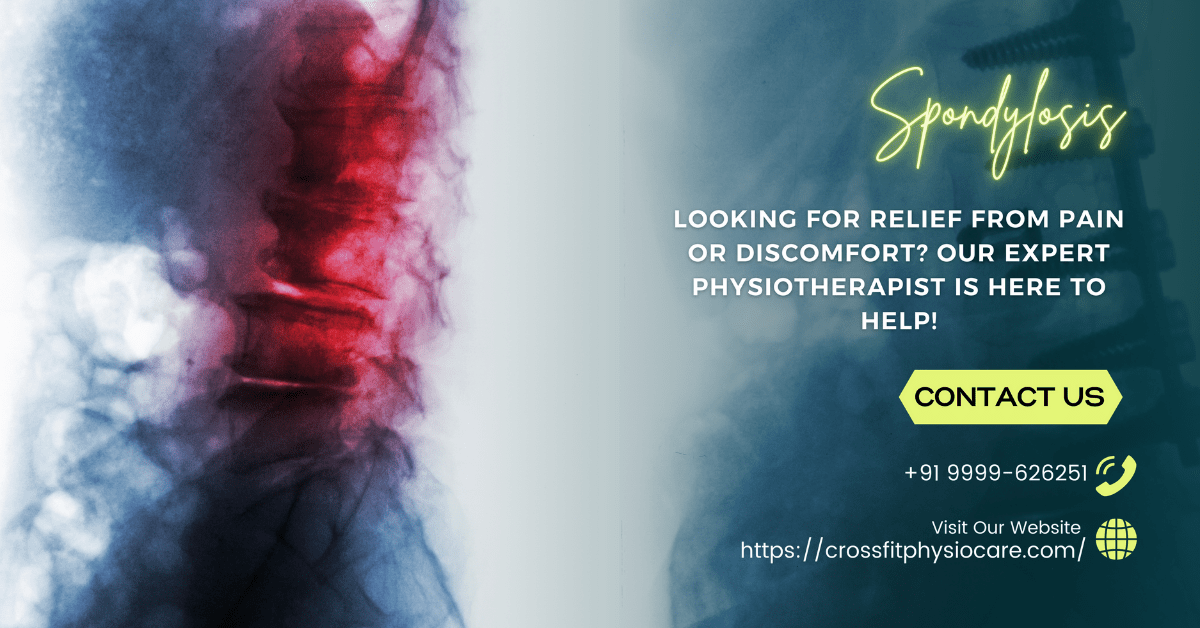
Spondylosis
Spondylosis, also known as spinal osteoarthritis, is a degenerative condition that affects the spine. It involves the wear and tear of the spinal discs, vertebral joints, and other structures in the spine due to aging, repetitive stress, and other factors. Spondylosis is a common condition, particularly as people get older. It can cause pain, stiffness, and other symptoms that affect the quality of life.
Causes of Spondylosis:
Disc Degeneration: Over time, the spinal discs lose moisture and become less elastic, causing them to lose height and cushioning.
Bone Spurs: As the body responds to disc degeneration, it can form bony growths (osteophytes) that can lead to joint inflammation and compression of nerves.
Ligament Changes: Ligaments that support the spine can become stiff and less elastic, affecting spinal mobility.
Facet Joint Changes: The small joints that connect the vertebrae can undergo degenerative changes, leading to pain and stiffness.
Symptoms of Spondylosis:
Pain: Dull, achy pain in the neck or lower back that can radiate to the arms or legs.
Stiffness: Reduced range of motion in the spine due to changes in the discs and joints.
Nerve Compression: Depending on the location of the degeneration, there can be symptoms such as numbness, tingling, or weakness in the arms or legs.
Headaches: In cases of cervical spondylosis (neck involvement), headaches may occur due to muscle tension and nerve irritation.
Treatment and Management of Spondylosis:
Pain Management: Over-the-counter pain relievers or prescribed medications can help manage pain and inflammation.
Physical Therapy: Targeted exercises and stretches can help improve spinal flexibility, strengthen supporting muscles, and alleviate pain.
Posture Improvement: Practicing good posture and ergonomics can reduce strain on the spine.
Heat or Cold Therapy: Applying heat or cold packs can provide relief from pain and muscle tension.
Corticosteroid Injections: In some cases, corticosteroid injections may be recommended to reduce inflammation and provide relief.
Surgery: Surgery is considered if conservative treatments fail or if there’s severe nerve compression or spinal instability.
Prevention:
Stay Active: Regular exercise can help maintain spine health, flexibility, and muscle strength.
Maintain a Healthy Weight: Excess weight can put additional stress on the spine.
If you’re experiencing symptoms of spondylosis, it’s important to consult a healthcare provider for an accurate diagnosis and appropriate treatment recommendations. A healthcare provider can help manage your symptoms and develop a personalized treatment plan based on your individual needs.
- Daani Plaza E-595-596, 4th Floor, Ramphal Chowk Rd, Block E, Sector 7 Dwarka, New Delhi - 110075
- +91 99996 26251
- support@crossfitphysiocare.com
How can we help you?
If you are looking for the best and nearest physiotherapist, then click below to message us on WhatsApp.
